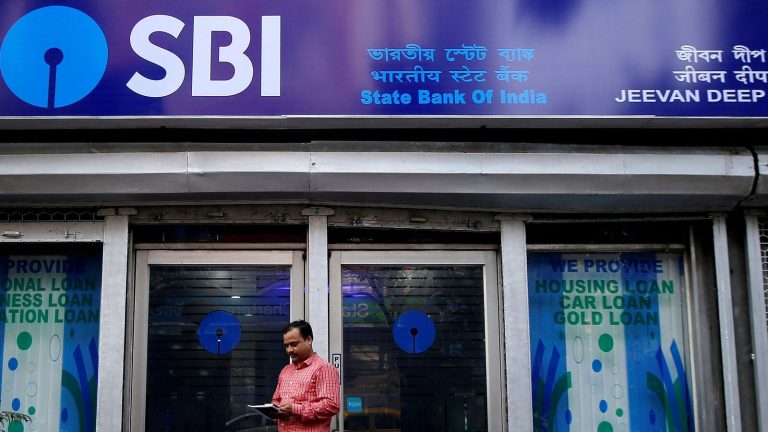The sale is likely to fetch the US-based Warburg Pincus about $350 million, they said.
Warburg Pincus and Premji Invest, the family office of Wipro Ltd’s founder Azim Premji, bought a 26% stake in SBI General Insurance for $432.38 million in 2019, valuing the insurer at $1.66 billion. They had acquired the stake from Insurance Australia Group Ltd, which had formed SBI General Insurance as a joint venture with State Bank of India (SBI) in 2010.
Also read: How is packing for the road less travelled
“The investor has been around for more than six years and now they are looking to exit,” said one of the persons cited above. “(SBI General Insurance) plans an IPO later next year and Warburg is looking to exit via a stake sale before that.”
SBI owns about 69% of SBI General Insurance, while Napean Opportunities Llp, an entity owned by Premji Invest, holds around 15.8%, and Honey Wheat Investment Ltd, a Warburg Pincus vehicle, about 9.9%.
“Warburg Pincus is expecting around $350 million for its 10% stake, valuing (SBI General Insurance) at $3.5 billion, more than doubling its investment in the last six years,” the second person added.
Warburg Pincus, which has been active in India for more than two-and-a-half decades, has invested about $10 billion into the country so far. India accounts for over 10% of the US private equity firm’s global investments.
Over the past 18 months, Warburg has sold entire or partial stakes in portfolio companies CarTrade, Kalyan Jewellers and MedPlus Health Services.
Warburg Pincus and SBI General Insurance did not reply to queries emailed on Thursday.
SBI General’s strong run
SBI General Insurance is India’s 11th largest general insurer overall, with a 4.3% market share based on gross direct premiums written in the first half of 2024-25, Investment Information and Credit Rating Agency said in a report in December. Among private insurers, it ranks 7th with a 4.4% market share.
According to Crisil, SBI General Insurance has maintained a relatively diverse mix when compared with the domestic insurance industry’s reliance on traditional segments such as motor and health.
“During fiscal 2024, (SBI General Insurance’s) motor insurance portfolio clocked a healthy growth rate of 31% thereby retaining its share in the gross premium. The health insurance segment, outpaced by motor in the past few quarters, is the second largest segment for the company based on the gross premium written in fiscal 2024,” Crisil said in a December report.
“For the first half of fiscal 2025, motor formed 30% of the overall premiums, whereas crop accounted for 24%, followed by health insurance at 19% and fire insurance at 14%,” it added.
SBI General Insurance’s gross direct premiums stood at ₹6,586 crore at the end of September 2024, up from ₹5,691 crore a year earlier, according to the Crisil report. Profit after tax in the first half of 2024-25 improved to ₹414 crore from ₹60 crore in the corresponding year-earlier period.
Combined ratio, a key metric reflecting an insurer’s underwriting profitability, stood at 110.8% as on 30 September 2024, and the solvency margin at 2.26 times, Crisil added.
All insurance companies are required to maintain a solvency ratio—which reflects an insurer’s ability to meet its debt obligations—of 1.5. The combined ratio is calculated by adding the loss ratio and expense ratio.
Also read | Global investors see India as key market for PE investments: Coller Capital
For PEs, a high-growth lure
India’s non-life insurance sector, despite its low market penetration, saw premium income increase by 19.5% year-on-year to ₹1,14,972 crore ($13.8 billion) in 2023-24 on strong demand for health and motor policies.
This high growth and low market penetration makes the domestic insurance segment attractive for long-term investors such as private equity firms.
“Globally, private equity investments in the insurance sector have been rising,” said Sudip Mahapatra, partner at law firm S&R Associates. “Funds see an opportunity in value accretion through operational enhancements, such as use of AI and expansion of distribution. For insurers, private capital allows them to expand products and distribution.”
Among recent high-profile deals in India’s insurance sector is Bajaj Finserv’s decision to acquire German insurer Allianz SE’s 26% stake in its insurance business—Bajaj Allianz General Insurance Co. Ltd and Bajaj Allianz Life Insurance Co. Ltd—for ₹24,180 crore, breaking a 24-year partnership.
Also, Piramal Enterprises Ltd plans to ₹4,000-5,000 crore”>sell its stake in Shriram Group’s insurance ventures for ₹4,000-5,000 crore. Last year, Central Bank of India bought a 24.91% stake in Future Generali India Insurance.
Also read | Heath insurance in India ought to cover preventive care as well


